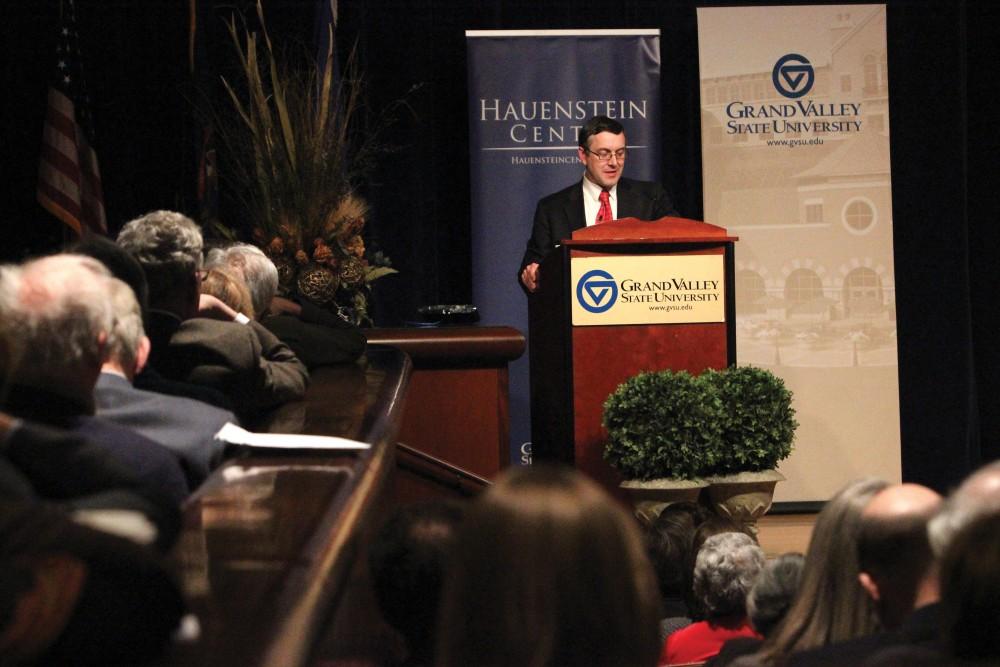Are we really united?

Colin Woodard discusses the history of our continent, offering a revolutionary and revelatory take on American identity, and how the conflicts between them have shaped our past and mold our future.
Jan 27, 2014
Since 1776, the United States has been viewed as a whole, undivided nation. Journalist and historian Colin Woodard offers another view, though.
Woodard joined Grand Valley State University students and faculty at the Loosemore Auditorium on Thursday to discuss the concepts in his book, “American Nations: A History of the Eleven Rival Regional Cultures of North America.”
When Woodard looks at a map, he doesn’t see 50 different states but rather 11 different regions. Michigan is part of what Woodard refers to as “Yankeedom.”
Woodard suggested that the U.S. is not, in fact, divided by state lines, but rather by cultural boundaries formed at the country’s beginning. His presentation walked through the different cultural regions in the U.S., discussing how they were formed and on what morals and standards. Other regions include the Deep South, the Midlands and the Far West.
“Our country was founded on different regional identities,” he said. “State lines are secondary.”
In addition, he said these manmade state lines distort the impact of different cultures.
“My goal is to clarify the details in obstacles our country faces in finding common ground,” Woodard said.
By doing so, he hopes to increase people’s understandings of one another as a nation.
Woodard caused listeners to think about their identity as American citizens. His points challenged the audience to consider how they have been conditioned to think a certain way based on the region they reside in and the history of that area.
For example, most of “Yankeedom” was founded by Puritans. Their influence created a region that is comfortable with government regulation and moderation, Woodard said.
“People’s attitudes toward one another and how they are raised to see people are often viewed as truths,” Provost Gayle Davis said. “They do not realize that these attitudes are often a regional thing.”
Although the event was unrelated to GVSU’s Martin Luther King, Jr. Commemoration Week, certain aspects of the lecture resounded with King’s beliefs and work.
King emphasized learning how to see one another as fellow human beings and coexisting as one nation, not as southerners, Yankees, east coasters or as different ethnicities or races.
Woodard’s work ties into what King was trying to accomplish by recognizing the unique attitudes and properties of different areas in the U.S. These differences are what cause conflict and will continue to shape the future of the nation as they have shaped the past.
In the words of King, “The function of education is to teach one to think intensively and to think critically. Intelligence plus character: that is the goal of true education.”
The lecture was a part of the Common Ground Initiative, a program created by GVSU’s Hauenstein Center for Presidential Studies. The next event on Feb. 12 will feature Kelly LeCoy, the founder and owner of Uptown Kitchen. Information on future events can be found at www.hauensteincenter.org.

























